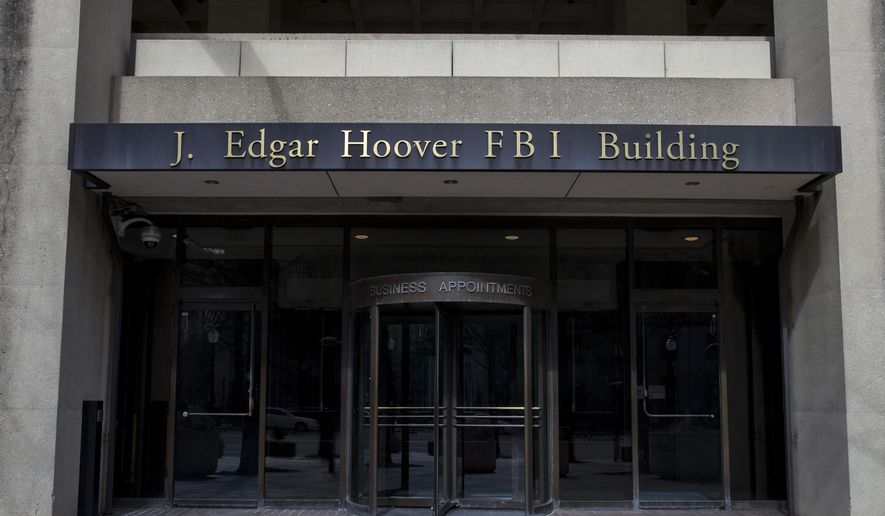The FBI is ramping up its push to undermine digital encryption, which law enforcement officials say prevents them from more easily catching criminals.
Civil liberties advocates oppose the FBI’s efforts to create digital back doors for the government and say the feds’ wish means making defective tech products that may create new victims.
The FBI is seeking to collect data on the number of times encryption has obstructed its work, and submitted a notice in the Federal Register.
The notice set a June 23 deadline for public comment on the FBI’s proposal to “collect data on the volume of law enforcement investigations that are negatively impacted by device and software encryption.”
The notice does not include a request for the number of times the FBI has tried to bypass encryption, nor does the request ask for data on the number of times the bureau has successfully breached people’s devices.
Cato Institute senior fellow Patrick Eddington said the FBI’s selective data collection request is representative of a deliberate attempt by the bureau to gather information that supports its ideology.
“This is an effort to use taxpayer dollars to advance a policy agenda,” Mr. Eddington said. “That is clearly not what the FBI is supposed to be doing.”
Not long before the bureau submitted in April its notice in the Federal Register, the bureau confronted privacy proponents over the challenges of encryption at an event hosted by the Center for Data Innovation.
Katie Noyes, section chief of the FBI’s Science & Technology Branch, appeared at the event and sparred with Mr. Eddington and the National Association of Criminal Defense Lawyers’ Jumana Musa.
“How much crime are you comfortable with allowing?” Ms. Noyes said to her fellow panelists. “How many victims? How many mothers and parents are sitting at kitchen tables dealing with sextortion and those things?”
Ms. Noyes’ emotional plea came after Ms. Musa said the FBI exaggerated the number of phones it could not penetrate. Ms. Musa also pointed to problems with its previous statements to the public.
She said the FBI told “Congress that they had over 7,800 phones that they could not get into … when the reality was it was more like 1,200 phones and that’s a pretty big misrepresentation,” Ms. Musa said. “And that also does not sort of lead to confidence when it comes to the notion of whether or not the FBI needs some of these tools as much as they say they do.”
Ms. Musa said she understood how bypassing encryption would be useful and convenient, but that does not make it constitutional or lawful.
When Ms. Noyes questioned the lawless environment that would result from encryption tools, Ms. Musa said following the law would not yield a lawless world.
“Actually no, constitutionality is not a lawless environment,” Ms. Musa said. “It is an environment which ensures that the government is acting within the constitution, within the law.”
Mr. Eddington told The Washington Times that should the FBI succeed in breaking encryption or getting back doors built into new tech, criminals may look to victimize FBI agents.
As the bureau readies to get updated figures on encryption obstructing its work, the FBI’s notice in the Federal Register said its new data request would require 950,000 respondents.
There are more than 800,000 law enforcement officers serving in the U.S., according to the National Law Enforcement Officers Memorial Fund, and Mr. Eddington said the number of estimated respondents shows the survey is designed to attempt to ask every cop in the country about challenges with encryption.
The FBI refused to answer The Times’ questions, including whether the FBI is collecting data on the number of times it tried to break encryption or succeeded and whether it would share that data publicly.
• Ryan Lovelace can be reached at rlovelace@washingtontimes.com.




Please read our comment policy before commenting.